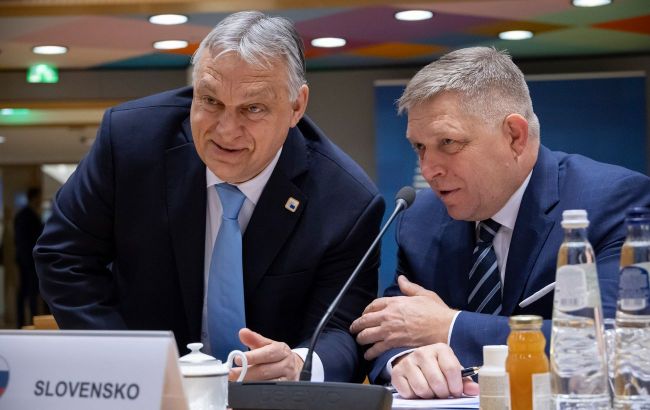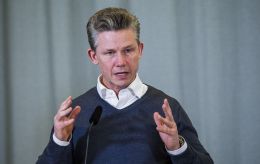Hungary and Slovakia may delay adoption of 19th EU sanctions package against Russia
 Prime Ministers of Hungary and Slovakia, Viktor Orbán and Robert Fico (photo: Getty Images)
Prime Ministers of Hungary and Slovakia, Viktor Orbán and Robert Fico (photo: Getty Images)
The governments of Hungary and Slovakia plan to postpone the adoption of the 19th EU anti-Russian sanctions package in pursuit of concessions to protect their economic interests, according to EUObserver.
Hungary's position on sanctions against Russia
According to information from European diplomats, Hungary plans to seek exemptions from the European Commission's proposed full ban on Russian liquefied natural gas (LNG) imports. But instead of publicly threatening to veto the entire package, Budapest has quietly reserved some of its points, printed in small type.
Hungarian Prime Minister Viktor Orbán typically opposes sanctions publicly. However, US President Donald Trump, with whom he has close ties, insists on a complete EU rejection of Russian energy resources.
Budapest is preparing for working consultations with leaders of other EU countries regarding specific points of the potential embargo.
Why Slovakia opposes the 19th sanctions package against Russia
Slovakia states that it does not want any new sanctions against Russia.
According to the publication, its leaders hope for a workaround in EU legislation that bans internal combustion engines by 2035, as the country produces a significant number of cars.
Slovak Prime Minister Robert Fico may postpone negotiations on sanctions against Russia until the next meeting of EU leaders on October 23, sources said.
According to European diplomats, Fico may be able to achieve symbolic concessions without delaying the adoption of the following sanctions package for too long.
Slovakia wants the approval of the 19th EU sanctions package against Russia to take place at the leaders' summit in the second half of October.
The 19th EU sanctions package against Russia has been somewhat delayed. Brussels explained this by the preparation of more onerous restrictions targeting three main sectors.

